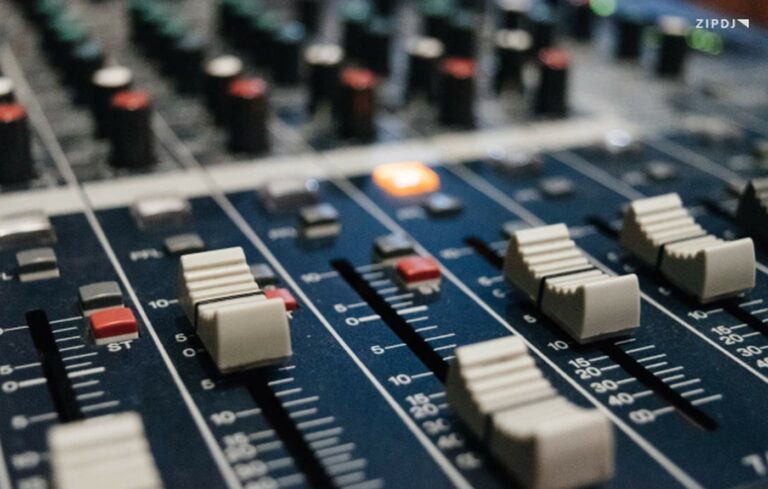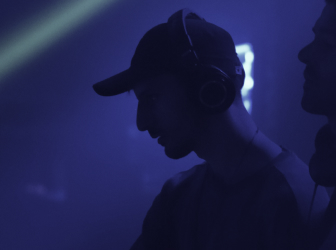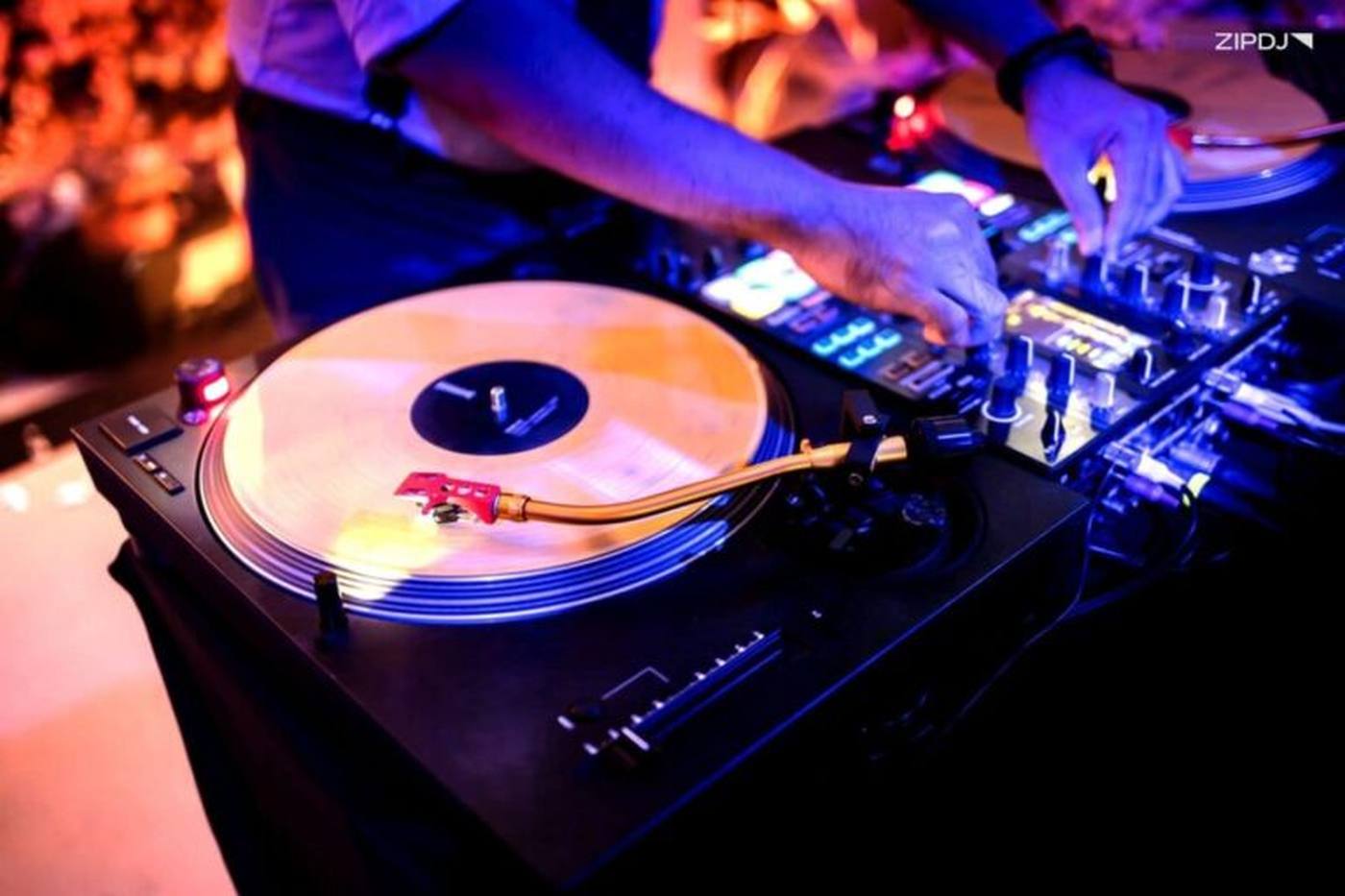Music Curators: A DJs Role As A Curator Of Music In 2024

With access to the latest new releases and contacts in the industry, DJs play a crucial role as music curators and tastemakers.
This gives DJs unique insights into the evolution of music genres and how they impact the crowd when played in their DJ sets.
In this guide, we’ll outline how DJs act as music curators and shine a much-needed spotlight on emerging artists and labels.

Music Curators: A DJ’s Role As A Curator Of Music In 2024
Becoming a DJ is about much more than simply playing records, with plenty of opportunities to shape the industry by acting as a music curator.
Whether you’re a new DJ looking for your big break or an established professional, this guide will help you position yourself as a music curator.
So, without further ado, here’s everything you need to know about the role of DJs as music curators in 2024:
Accessing Unreleased Music
One of the main advantages of being a professional DJ in the digital age is having instant access to new tracks from emerging artists.
This makes their role as music curators much easier than in the past when DJs relied on getting signed up to vinyl mailing lists.
DJs can get their hands on unreleased tracks from a range of sources, with signing up for a DJ pool one of the most common methods.
DJ record pools provide exclusive access to tracks from independent artists that can’t be found elsewhere on the internet.
As a result, a DJ’s role as a music curator places them on the cutting edge, developing a deep understanding of various genres.
This allows them to play and test unreleased music professionally and gather real-time feedback from the audience.
By accessing unreleased music from major or independent artists and labels, they can follow current trends and stay ahead of the curve.
This music content can then be used to create innovative playlists and earn money through a variety of music curator jobs.
Shaping New Genre Trends
Whether you’re learning how to become a club DJ or creating a radio show for a local station, a grasp of genre trends is a must.
Electronic music genres are in a continual state of flux, with each subgenre inspiring producers to head in new and exciting directions.
A DJ’s role as a music curator plays a fundamental part in this evolution, shaping new genre trends through trial and error.
Many of the biggest nightclubs in the world are dedicated to hosting genre-specific events where the latest releases are played.
As such, event organizers are constantly on the lookout for DJs with their fingers on the pulse and who love listening to new styles.
Additionally, the most proficient DJs are ones with a clear grasp of the interaction between genres and are capable of playing diverse mixes.
This interplay allows them to create new styles of music that incorporate elements from various genres that enhance one another.
Music curators understand what makes great songs engaging, exploring new sounds and helping artists venture into different territories.
Interacting With Record Labels
Understanding how to interact with record labels is crucial for developing a DJ career and staying on top of the latest trends.
Developing a healthy and respectful relationship with record labels is an integral aspect of what music curators are known for.
This gives them a unique insight into the trends and releases that dominate the music industry, along with reliable access to new music.
It also makes it much easier for them to understand the direction a brand is taking and access music from up-and-coming new talent.
DJs who are interested in becoming influential music curators can reach out to record labels and request access to mailing lists.
A strong portfolio outlining their background in DJing and previous venues will help them to get noticed and start developing a relationship.
Previous experience writing about music will also strengthen the impression they give as tastemakers and established music curators.
These relationships can also lead to additional income, with potential royalty points and other perks available for successful music curators.
Providing Feedback To Artists
Just as DJs can act as music curators through their relationship with record labels, so too can they gain insights by communicating with producers.
A great DJ has a solid grasp of what makes for a good track, from structuring intros and outros to delivering dance floor-worthy drops.
By working alongside established music producers and artists, such DJs can fine-tune this understanding with more precision.
DJs who are members of record pools can use this platform to establish a direct line of communication with new artists on the service.
They also reach out to producers they already love, playing their new tracks so they can provide them with valuable feedback.
This interaction is a fundamental aspect of how their role as music curators is shaped through listening to and understanding production.
If you’re a DJ learning how to become a DJ producer, this process will give you additional insights into what listeners want.
Assessing The Impact On A Crowd
Another fundamental manner in which DJs perform the role of a music curator is through their direct contact with the target audience.
It’s a core aspect of the process of building playlists for DJ sets, filtering out what doesn’t work, and focusing on tracks that do.
This means paying close attention to how the people on the dance floor react, particularly when trying out new tracks for the first time.
It also extends to directly interacting with the audience and discussing their music preferences and tastes on the dance floor.
By drawing on this feedback, DJs are better able to act as music curators to create playlists that reflect the audience’s expectations.
An understanding of how music impacts the crowd is a fundamental way to improve your DJing performances and create a strong impression.
This allows them to better structure their sets and understand when to drop key tracks into the mix and keep the dance floor moving.

Curating Playlists On Streaming Platforms
One of the most important aspects of preparation is knowing how to organize DJ playlists and save valuable time when performing.
There are many different methods used by DJs when compiling playlists for their sets, which carry across to streaming platforms.
As a playlist curator, DJs have a keen ear for which tracks sound great together and how to build playlists with a sound structure.
While there are no firm and fast templates for playlist curation, a great DJ knows how playlists work as soundtracks for different moods and occasions.
This includes a good understanding of how to balance out different genres, mixing up the tempo, style, and other music elements.
A great music curator also knows what proportion of new releases and classic, well-loved tracks work best when building playlists.
This ensures the playlist remains fresh and invigorating while also giving the audience plenty of classics to listen to.
A strong and compelling playlist with repeat listening value should be much more than simply background noise.
Through the process of compiling playlists on various streaming platforms, DJs showcase their ability to act as informed music curators.
Promoting Music On Social Media
Whatever your creative interests are, it’s impossible to promote your skills without a strong presence on various social media platforms.
TikTok and Instagram offer users a powerful tool for sharing short-form content that captures the audience in a few seconds.
Social media platforms such as Facebook are also great for keeping fans informed about your upcoming DJ sets and tours.
These platforms are also widely used by independent artists and other producers to promote their latest releases online.
DJs use the same platforms as part of their role as music curators, sharing their latest DJ mixes and playlists with their following.
There are several advantages to promoting music on social media, with instant interaction allowing for real-time feedback.
Music curators can also gauge the popularity of music collections by analyzing the amount of traffic and engagement their posts receive.
DJs also regularly appear on the best DJ podcasts to share their unique insights into the music industry in interviews.
Writing Reviews In The Music Press
A more direct role some DJs play as music curators comes through their contributions and reviews in the music press.
Writing a glowing review of a new release that’s read by thousands of people can instantly transform an underground track into a hit.
Their expertise in the industry lends their insights a greater degree of credibility that further enhances the impact of their reviews.
This credibility also depends on the website they’re writing for, with outlets such as Consequence of Sound and Pitchfork among the best.
Such websites are often the first port of call for DJs when deciding where to invest their time and money for new music.
They’re written and edited by some of the most reputable music curators on the scene, with years of experience covering niche genres.
Other DJs are more likely to consider including the tracks in their upcoming playlists and give them air time in their DJ mixes.
As well as writing for established outlets, DJs often contribute their insights on the best DJ blogs where they can engage with readers.
At the same time, the writing process helps DJs refine their ability to articulate what works and what doesn’t when acting as curators.
Giving New Music Radio Airtime
While DJs who work in bars, clubs, and restaurants are typically responsible for building their playlists, the setup is different for radio stations.
Professional music curators are hired by many established radio stations to compile extensive playlists for the radio DJs to play.
In this sense, the role of music curators for radio stations is similar to that of other types of DJs, requiring an understanding of core music genres.
It also requires the ability to collaborate with artists and labels to keep on top of new tracks and popular music trends.
Radio curators spend a lot of time listening to new songs, wading through average and poor tracks, and picking out the gems.
They’re also required to work with various clients, conduct market research, and define an overall tone.
An understanding of the role of music curators is also important if you’re hoping to become a radio DJ and launch a professional career.
You’ll develop a keen appreciation for fostering relationships with your audience and taking their feedback on board.
Influencing Genres Through Music Production
Both DJs and music producers alike have a vested interest in understanding the future of music and emerging technology trends.
Technology such as artificial intelligence and stems are all playing a key role in the nature of DJing and music production.
In their role as music curators, DJs develop a keen understanding of how these developments impact the scene in a variety of ways.
At the same time, an increasing number of DJs are branching out and trying their hand at music production themselves.
With direct access to their target audience, DJ producers have an advantage that allows them to tailor their tracks to match current tastes.
This advantage carries over into their role as curators, developing an appreciation for what sounds great and what falls flat.
By expanding your role from DJing to incorporating music production, you’ll have a direct impact on the future of your chosen genres.
This will also give you the edge over your competitors, with a stronger appreciation for the role of AI and other technologies used by DJs.
Summary
The role of DJs as music curators is a complex interaction between producers, labels, and the various platforms for sharing music.
With direct access to unreleased and exclusive content, DJs can work closely with industry leaders and help shape the future.
Whether you’re DJing in clubs or hosting a radio show, you can use your influence to highlight upcoming artists and enhance your career.
Discover the latest exclusive tracks for your curated playlists with a ZIPDJ subscription and share your insights as a music curator.
Not a member ?
Join Today for Unlimited Music Downloads. Visit zipdj.com for more information.



